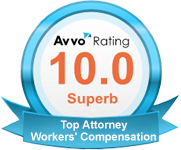If you or a loved one are a victim of national origin or religious discrimination, contact an employment lawyer right away. The attorneys at Heimerl & Lammers are skilled at protecting employees’ rights relating to national origin or religious discrimination. Our employment discrimination attorneys will review your situation, explain your legal options, and fight on your behalf to get you justice and compensation from the employer who discriminated against you. To learn more about how Heimerl & Lammers can help you, get in touch with us for a free consultation by calling (612) 294-2200.
What Is National Origin, Religious Discrimination?
U.S. law has long prohibited discrimination in the workplace based on an applicant’s or an employee’s national origin and religious beliefs. Unfortunately, the prohibition of such discriminatory practices has not resulted in their elimination. According to the U.S. Equal Employment Opportunity Commission (EEOC), thousands of complaints were filed concerning workplace national origin discrimination and religious discrimination during 2020 alone. Of these complaints, national origin discrimination concerns comprised just under 10 percent of all unlawful workplace discrimination complaints filed with the EEOC that year, and religious discrimination complaints comprised nearly four percent. While these forms of workplace discrimination are not cited as often as concerns about race, sex, age, and disability, they remain urgent and ever-present problems for the workforce based in America.
Understanding that both private sector and public sector workers have the right to pursue employment, work, and enjoy the benefits of employment free from discrimination based on national origin and religious beliefs is critical for a few reasons. First, knowing your rights will help you identify if or when they are infringed upon. Second, understanding that you have opportunities for legal recourse available to you will empower you to seek out an attorney’s guidance when you need it.
Employment Discrimination Law – The Basics
The primary law that governs workplace discrimination in the U.S. is Title VII of the Civil Rights Act of 1964 (Title VII). This law prohibits employers from discriminating against applicants and workers based on their color, race, sex, religion, or national origin. Since the passage of Title VII, additional federal laws have made it illegal for employers to discriminate based on age for older workers, disability, and genetic information.
It is important to understand that both federal and state laws are concerned with discrimination in the workplace. If state law more generously protects workers than federal law does, the expanded protections offered by state law will govern the case at hand. For example, in Minnesota, marital status is a protected class. This means that Minnesota employers are prohibited from discrimination based on whether someone is married, divorced, single, legally separated, or widowed. However, federal law does not treat marital status as a protected class. As a result, if a Minnesota employee was discriminated against for being married, our firm would need to seek legal recourse under state law, not federal law.
What Does Workplace Discrimination Look Like?
Discrimination in the workplace takes many forms. Sometimes, it is blatant. For example, suppose an employer states to a worker during their exit interview that they have been fired because they requested a reasonable accommodation related to prayer practices well-established by their religious tradition. In that case, the affected employee could be pretty sure that they were being discriminated against due to their religion. However, not all discrimination is so blatant. Often, discrimination lurks in the phrasing of questions, flimsy excuses for failure to hire or promote someone, or adjusting an individual’s duties for unlawful reasons.
Because it can be so challenging to identify exactly what prohibited discrimination looks like, it is a good idea to schedule a free consultation with our firm even if you are unsure about whether the treatment you are experiencing is, in fact, unlawful discrimination. All too often, workers suffer through mistreatment alone because they are unaware that the treatment that they are experiencing is prohibited by law. Seeking legal guidance will help you clarify what is happening to you to make informed decisions about your options.
Sometimes, it can be helpful to learn about the kinds of unlawful discrimination that others have suffered so that the circumstances that you may be facing might be easier to identify and process. With that said, it is important to remember that this list is not comprehensive. Even if you are suffering due to circumstances not detailed below, you may have grounds to file legal action against your employer. Yet, workers face prevalent kinds of discrimination related to their national origin or religion. These types of discrimination include:
- Purposefully or repeatedly scheduling selection activities or other important events in conflict with a worker’s known religious needs
- Paying workers who belong to a specific protected class more or less than others in similar or the same positions
- Refusing to hire, promote, or recruit an individual based on their national origin, religion, or name commonly associated with either protected class
- Either discouraging against or expressing a preference for workers based on a protected classification in job advertisements
- Refusing to allow for observance of a religious holiday or holy day if allowing for this observance would not create an undue hardship for the employer
- Basing hiring, work, promotion, or termination decisions on assumptions made about a worker’s protected classification(s)
- Giving a negative reference on behalf of someone based on their protected classification
- Imposing a dress code that violates a worker’s religious beliefs
- Failing to reasonably accommodate a worker’s religious needs that do not pose an undue hardship to the employer
- Allowing a hostile work environment to develop
- Harassment of a worker based on their protected class
- Retaliating against a worker for reasons related to their protected class and exercise of their rights under the law
- Altering a worker’s responsibilities or position due to that individual’s protected classification or religious practices
National Origin, Religious Discrimination Lawyers
The Civil Rights Act and MN state law protect individuals from being discriminated against as job applicants and employees based on their national origin or religion. If you believe you have been discriminated against because you are of a particular religion or national origin, contact a religious discrimination lawyer or national origin discrimination lawyer at Heimerl & Lammers today to discuss your legal options. We can help evaluate your situation and handle your claims on your behalf, whether through Minnesota Department of Human Rights (MDHR), Equal Employment Opportunity Commission (EEOC), or other means.
Discrimination Based On Religion – Additional Considerations
What exactly are “religious beliefs” for the purposes of employment discrimination? The EEOC does not limit its definition of religious beliefs to those that are theistic. Theistic traditions—which profess a belief in God or gods—are broadly considered religious in nature. However, the federal government’s definition of religious beliefs also extends to those non-theistic moral and ethical beliefs concerning rights and wrong held so deeply and sincerely that they can be said to match the strength of traditional religious views.
Note that the “right and wrong” in question must generally concern so-called “ultimate ideas” about life itself, purpose, and death in order to be considered tenants of religious beliefs. Suppose a view is grounded in political, economic, or social concerns. In that case, that is not a foundational religious concern in the eyes of the federal government for workplace discrimination.
Additionally, it is important to note that if someone is discriminated against because they are either married or associated with someone who has particular religious views, this is unlawful mistreatment. Even if an individual is non-religious, agnostic, or atheist, they may have grounds to file legal action if they are discriminated against based on any connection with a religious tradition or viewpoint.
Reasonable Accommodations For Religious Workers
Just as a worker may not be compelled to participate in a religious activity as a condition of their employment, a worker’s need for a reasonable accommodation related to their religious needs must be respected if it does not create an undue hardship for their employer. Generally speaking, reasonable accommodations allow for an adjustment to a worker’s duties, environment, or other employment circumstances so that the worker may practice their religion.
Most often, reasonable accommodations in employment are discussed in American society when they concern workers who are disabled. Such accommodations may include making a workstation wheelchair accessible, allowing an employee a flexible schedule so that they may receive medical treatment, and providing visually impaired workers with software modifications that make their reading material easier to process. Reasonable accommodations for workers with sincerely held religious beliefs function in much the same way. If an alteration to a worker’s circumstances allows them to practice their religion and does not unduly burden their employer, the accommodation request in question must be honored.
Reasonable accommodations for religious employees may include (but are not limited to):
- Flexible scheduling to allow for prayer practices, fasting needs, and other religious observances
- Reassignments, time swaps, lateral transfers, workspace alterations, etc.—provided that these shifts are voluntary
- Dress code modifications or exceptions
- Allowance for permissible religious expression of some kind in the workplace
- Providing the worker with a safe, quiet place for prayer or contemplation
- Altering break schedules or arrival/dismissal schedules either permanently or intermittently based on the needs associated with a religious calendar
Before an employer can reject a worker’s request for a reasonable religious accommodation, that employer must prove that honoring the request would be an undue hardship. There is no single “test” for what undue hardship entails. If the request is prohibitively costly, would significantly decrease the efficiency or effectiveness of the position or the workplace, would infringe upon the rights of co-workers, would compromise the safety of the workplace, or would shift the burden of hazardous work significantly to others, a request may be lawfully denied.
Harassment
Harassment is a form of employment discrimination. As a result, if you have been harassed in the workplace or are actively being harassed due to your religious beliefs or national origin, it is time to connect with our firm’s legal team. At its most basic, harassment consists of unwelcome physical or verbal behavior concerning a worker’s protected classification.
Harassment is distinct from teasing and obnoxious comments that are offhand or isolated. The law safeguards explicitly against serious mistreatment of workers. This mistreatment must occur repeatedly or be so egregious that a single incident becomes actionable. For example, if a swastika is painted on a Jewish worker’s computer monitor, this behavior would likely be so egregious as to meet the single incident standard. Lesser but repeated conduct can also give rise to a cause of action. For example, if a co-worker goes out of their way each day to stop by the workstation of an employee raised in Mexico to make degrading comments about how it is time for them to take their siesta, that would likely give rise to legal concerns of harassment as well.
Hostile Work Environments
When workers are exposed to harassment that is so egregious or repetitive that it affects their ability to perform their job functions, a hostile work environment is likely created. Hostile work environments may also arise when the endurance of the offensive conduct in question is treated as a condition of a worker’s ongoing employment. To rise to the level that a hostile work environment has been created, the offensive conduct in question must be such that a reasonable person would perceive the situation as abusive, intimidating, or otherwise hostile.
Note that the offending party does not need to be the victim’s superior. Too often, workers are led to believe that because it is not a superior—such as a manager or supervisor—who is engaging in offensive conduct, they cannot hold their employer accountable for the harm they are suffering. Whether it is a co-worker, a third-party contractor, a supervisor, or even a direct report engaging in the offensive conduct in question, if you are being harassed, it is time to speak with an attorney at our firm about your options.
Retaliation
As briefly noted above, employers are prohibited from retaliating against workers who choose to exercise their legal rights. But what exactly does this mean? If a worker is entitled to a reasonable accommodation, an employer cannot—in any way—punish the worker for utilizing that reasonable accommodation. Similarly, employers cannot engage in adverse action against workers for choosing to take protected leave, from complaining about their mistreatment to human resources or to government agencies tasked with overseeing workers’ rights, nor can they in any way punish a worker simply for their religious beliefs or national origin.
Power imbalances in workplaces are real. Those with authority are often given significant space to mistreat those not assigned as much power within a business or organization. However, it is essential to understand that you—as a worker—have rights under the law. This is true whether you are a documented worker or an undocumented worker. Choosing to seek legal guidance if you have experienced retaliation, harassment, or discrimination is a profound way to honor the reality that the law grants you power within the American economic and justice systems.
Contact An Experienced Minnesota Employment Discrimination Lawyer Today
It is important to remember that you do not need to know for sure whether you have grounds upon which to file a legal claim before scheduling a no-cost, risk-free consultation with the Heimerl & Lammers legal team. The consultation process will help us to determine whether you have a cause of action and allow us to advise you about all of the rights and options made available to you by law. Once you have received personalized legal guidance in this confidential setting, you’ll be empowered to make whatever informed decision best meets your needs and goals.
Connecting with an attorney can be intimidating, especially if you are concerned that questioning your employer’s approach could imperil your family’s livelihood. Please know that the law prohibits retaliation based upon a worker’s exercise of their legal rights. Should your employer respond unlawfully to any action that you may take against them, know that our experienced, knowledgeable, and dedicated legal team will aggressively defend your rights. To learn more about your options and our approach to representation, please schedule a free consultation today by calling (612) 294-2200. We look forward to speaking with you.

National Origin and Religious Discrimination
Employees can become a target of their co-workers or management due to their countries of origin, being part of an unpopular ethnic group, or practicing a faith different than them. We might be able to help if your place of employment will not make accommodations for your religious practices, you are the target of bullying or hate speech, or are denied a raise or promotion due to animosity toward your ethnic group.
Our Commitment to
Service
Our commitment to you includes:
loading ...
loading ...
You are not alone
We Can Help.
The attorneys and staff at our firm take the time to actually listen to our clients. We will carefully explain the process you are facing and guide you through it while looking out for your best interests. We know that each client’s individual situation is unique and important to them. Therefore, we won’t treat your representation with the “cookie-cutter” approach other law firms seem to take.
If you need to speak with an attorney, contact us today. We can assist with a wide array of issues, including divorce, child custody, family law, personal injury, wrongful death, construction injuries, truck accident injuries, and workers’ compensation.
Get in touch with an attorney today.
Sign Up for Our Newsletter




